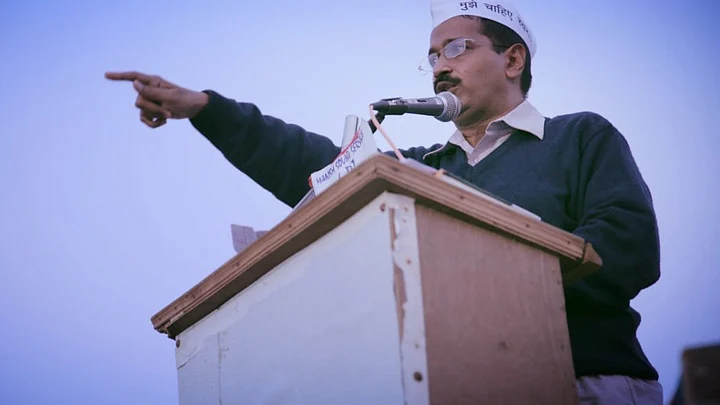In a much-needed refreshing change, the Film Certification Appellate Tribunal (FCAT) has asked the Censor Board of Film Certification (CBFC) to pass An Insignificant Man, Khusboo Ranka and Vinay Shukla’s documentary based on Arvind Kejriwal, with a U/A certificate. Ranka and Shukla were previously asked to obtain a hard-to-get No Objection Certificate (NOC) from Prime Minister Narendra Modi himself.
But FCAT’s decision comes as a victory for the film’s makers, as getting an NOC from political persons is not really permissible by law. The FCAT has also cleared the film, without demanding that the young filmmakers mute or delete any or all references made to BJP and Congress leaders.
We had done due diligence in terms of legal. Had we given in to the censor board, it would have been a setback for other makers, who wouldn’t have been able to name any living politicians or use public footage. There has been so much muddying of the waters by the former chairperson, saying what he was doing was by the rule book when it wasn’t, that it was important to speak up. The FCAT has clearly said the CBFC was over-reaching its powers and could have threatened the future of documentary cinema.Vinay Shukla, co-director of ‘An Insignificant Man’
This sure seems like a victory for independent filmmakers.
The details of FCAT’s order are below:
1) The tribunal has asked the CBFC to issue a U/A certificate to An Insignificant Man.
2) The tribunal has held that the requirement of seeking an NOC from political personages and others as a pre-condition for certification of the documentary is wholly unsustainable and not permissible by law.
3) The tribunal has clearly emphasised that they don't need to mute the names of Congress or BJP from the film.
4) The tribunal also noted that "Public interest is best served in upholding the Right to Freedom of Expression rather than protecting an undeserved reputation".
There is considerable merit in the submission of the Appellant that requiring NOC from public personalities would cull the documentary cinema, rather render the making of a documentary on political scenario neighs impossible. The Appellant in the documentary has inter alia quoted and reproduced/excerpts from speeches and/or taken from record events and information that is available in public domain. In these circumstances, requiring a filmmaker to obtain an NOC from the affected parties or characters in the film to whom references are made, tantamounts to CBFC abdicating its statutory functions. This is neither desirable nor permissible at law.Statement issued by the Film Certification Appellate Tribunal
(#TalkingStalking: Have you ever been stalked? Share your experience with The Quint and inspire others to shatter the silence around stalking. Send your stories to editor@thequint.com or WhatsApp @ +919999008335.)
